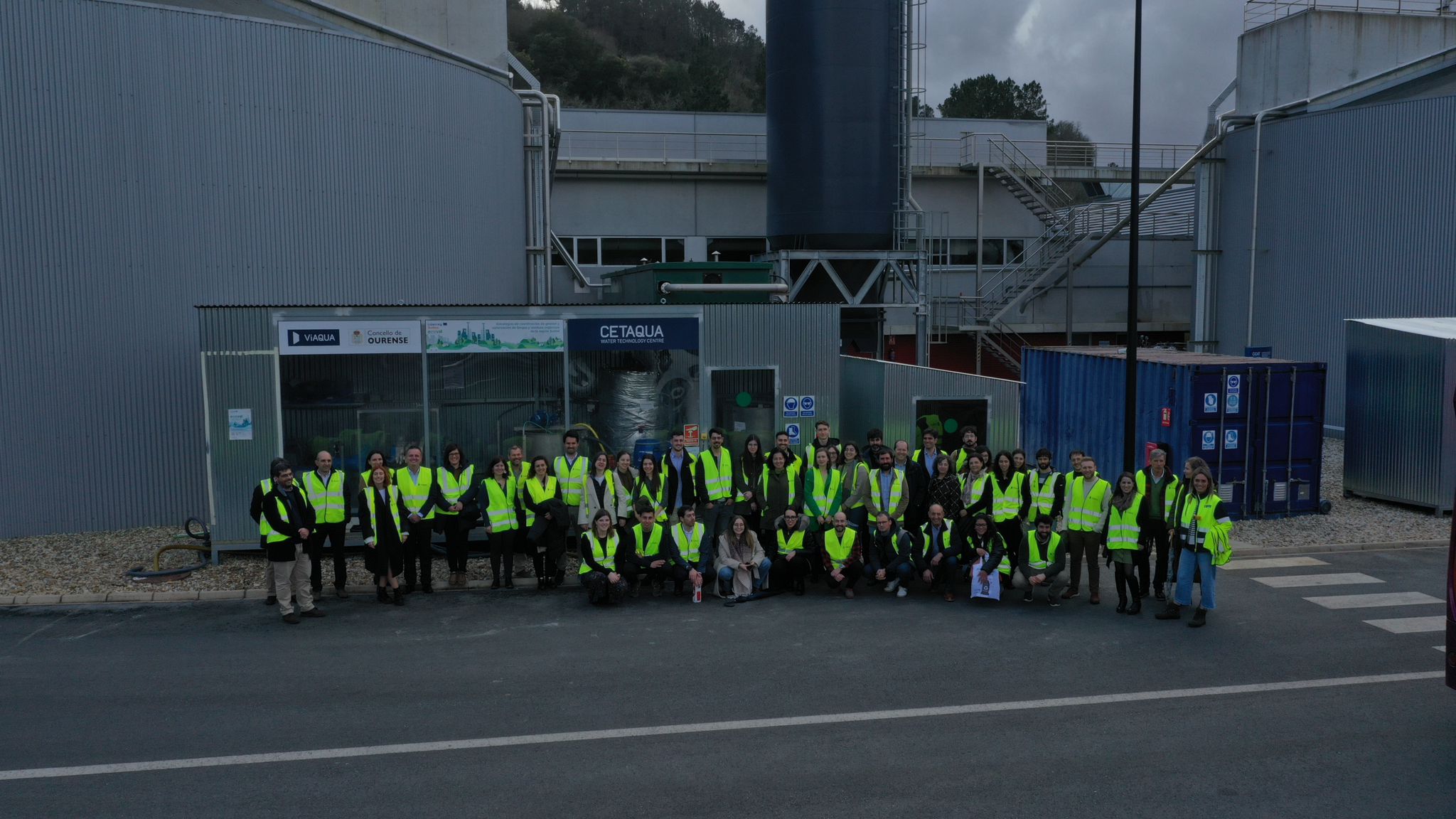The capacity of organic waste of urban origin to increase microbiological diversity in agricultural and forestry soils has also been demonstrated.
The Ecoval Sudoe project, co-financed by the Interreg Sudoe Programme through the European Regional Development Fund (ERDF), has successfully come to an end. This project, which started in November 2020, has successfully scaled up the technology to produce high-purity volatile fatty acids from sewage sludge and municipal biowaste. The initiative has demonstrated that both organic wastes have enormous potential for biofactory development and can be used as renewable and sustainable feedstock in the chemical industry.
Thanks to European funding of around 1.5 million euros and the work of the consortium, not only the technology was improved but the project also achieved the development of business models and the identification of legal barriers to its implementation. In addition, it has been demonstrated that the model can be replicated in industrial environments, which opens the door to its implementation in different sectors such as canning or dairy.
The results of the Ecoval project (Coordination strategies for the management and valorisation of sludge and organic waste in the SUDOE region) have also highlighted the capacity to use organic waste of urban origin (biostabilised waste and sewage sludge) to increase microbiological diversity in agricultural and forestry soils.
Thanks to this initiative, led by Cetaqua and with the participation of a consortium formed by the University of Santiago de Compostela, the Natural Heritage Foundation of Castilla y León, the Galician Business-University Foundation, INSA Toulouse, Nereus, Porto Ambiente and Aguas do Tejo Atlántico, great progress has been made in the sustainable production of materials and chemical products from organic waste, thus contributing to the circular economy and the protection of the environment.
Resources and environmental awareness
Beyond the results at a technical level, the consortium has placed great emphasis on environmental education and awareness since the correct separation of waste is extremely important for projects such as Ecoval Sudoe.
Around 1,500 pupils of different ages participated in activities set up by the consortium with the aim of raising awareness of the correct separation of waste at source, with a special focus on the fifth container for the separation of the organic fraction and on waste that should not be flushed down the toilet. One of the communication campaigns carried out by the project was awarded the European Waste Reduction Week Special European Award in recognition of its impact, creativity, and participatory nature.
The project’s website also contains other materials such as videos and posters or a good practice guide, which allow visitors to solve their doubts about correct waste separation, as well as interactive games to test the knowledge acquired. All these tools are essential for scaling up business models such as the one proposed by Ecoval, since without correct waste separation, no innovative process for waste recovery can be carried out.



